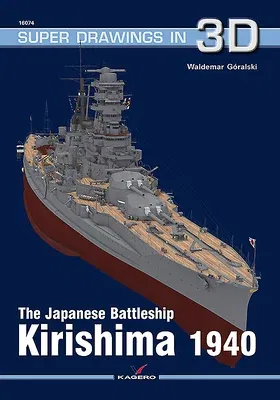Waldemar Góralski
(Author)The Japanese Battleship Kirishima 1940Paperback, 27 December 2019

Qty
1
Turbo
Ships in 2 - 3 days
Only 1 left
Free Delivery
Cash on Delivery
15 Days
Free Returns
Secure Checkout

Part of Series
Super Drawings in 3D
Print Length
80 pages
Language
English
Publisher
Kagero
Date Published
27 Dec 2019
ISBN-10
8366148599
ISBN-13
9788366148598
Description
Product Details
Author:
Book Format:
Paperback
Country of Origin:
PL
Date Published:
27 December 2019
Dimensions:
29.21 x
20.57 x
1.02 cm
ISBN-10:
8366148599
ISBN-13:
9788366148598
Language:
English
Pages:
80
Publisher:
Series:
Weight:
399.16 gm